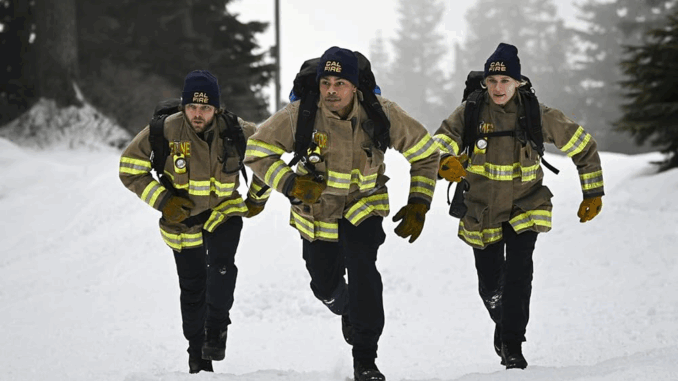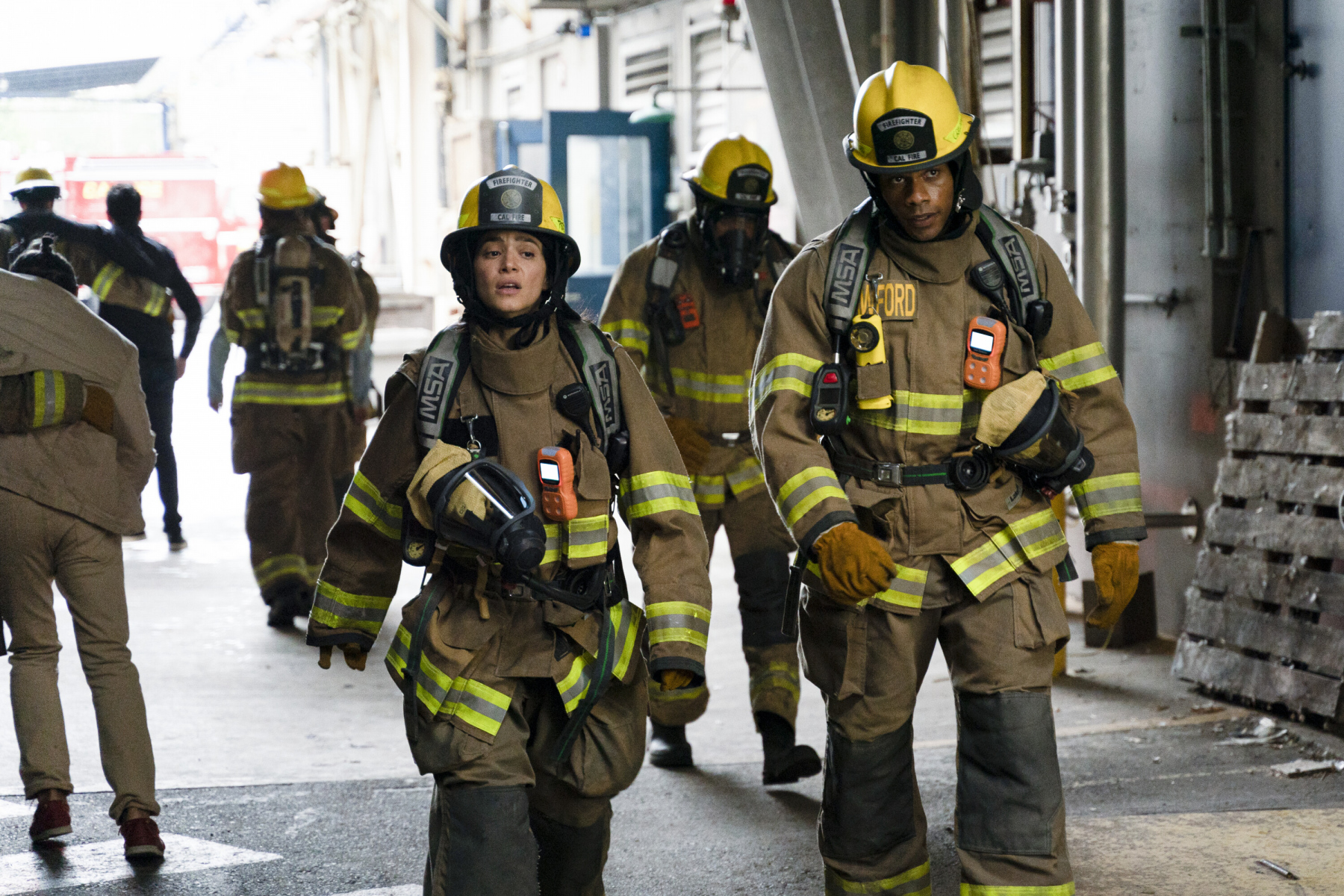
Introduction: When the Fire Becomes Family
In the high-risk world of firefighting, trust isn’t optional—it’s everything. That’s one of the central truths that Fire Country taps into with emotional clarity. From elite professionals at Cal Fire to the inmate firefighters earning redemption, the show reveals how teamwork is more than strategy—it’s survival.
But Fire Country goes deeper than the physical choreography of battling flames. It explores the psychological bonds between firefighters. These are not just co-workers; they are chosen family, forged by sweat, trauma, and trust under pressure. Through these relationships, the show delivers some of its most powerful storytelling.
More Than Colleagues: Brotherhood in the Fireline
At the heart of Fire Country lies the unspoken loyalty that binds the crew together. Whether it’s the seasoned leadership of Vince Leone, the unbreakable resilience of Eve, or the fiery determination of Bode, each character brings a piece of themselves to the collective whole.
In firefighting, your life is in the hands of the person next to you. That reality creates bonds deeper than friendship—what some call brotherhood, sisterhood, or simply crew. The show portrays this through:
-
Split-second trust: Jumping into burning buildings because someone you trust said, “I’ve got you.”
-
Emotional checks: A nod, a stare, a hand on the shoulder after a rough call. No words, just presence.
-
Unconditional backup: You may disagree off the field, but when the fire’s roaring, you move as one.
Firefighters in Fire Country don’t always like each other—and that’s important. The show allows for conflict, rivalry, and ego. But in the face of danger, those personal tensions are set aside for the greater mission.
Leadership Styles: Vince and Sharon as Parental Anchors

Vince and Sharon Leone serve as the emotional backbone of the Cal Fire unit. More than just commanding officers, they are protectors, mentors, and, in many ways, surrogate parents to the crew.
-
Vince, with his steady hand and unwavering command, embodies stoic strength. He leads by example, holding others to the same high standards he holds for himself. But we also see his vulnerability, especially in moments where the job puts his loved ones—like Bode—at risk.
-
Sharon, especially in her role as fire chief and later as a woman battling kidney failure, represents nurturing leadership. She listens more than she speaks, encourages growth, and gives people the second chances they sometimes don’t believe they deserve.
Together, they create a safe, structured environment where the crew can thrive—not just as firefighters, but as human beings. Their relationship echoes the parental archetype that so many firehouses develop in real life.
Found Family: Inmates and Redemption
One of the show’s most powerful messages is that family isn’t always biological. Nowhere is this more evident than in the way the inmate firefighters form their own unique unit within Three Rock.
These men, many of whom were estranged from their families or labeled irredeemable by society, find belonging in one another. There’s competition and tension, of course—but underneath that is a shared experience of rebuilding their lives.
Bode, Manny, Freddy, and the others slowly shift from reluctant teammates to something more intimate: a tribe of survivors. Each fire they fight isn’t just about saving lives—it’s about proving their own worth, to the world and to themselves. And they do it together.
This found-family dynamic is deeply moving because it captures something universal: the human need to belong. Whether you’re a career firefighter or serving time, Fire Country shows that the fire doesn’t care about your past—only your present loyalty.
Conflict and Camaraderie: Realistic Relationships Under Stress
One of the show’s greatest strengths is its refusal to romanticize team dynamics. Yes, there’s loyalty. Yes, there’s love. But there’s also:
-
Ego clashes (Jake vs. Bode)
-
Trust breakdowns (betrayals, misjudgments)
-
Romantic entanglements that complicate professionalism
These tensions are not just for drama—they reflect real-world stress fractures that occur in high-pressure teams. Firefighters live, eat, sleep, and bleed together. That kind of intensity magnifies every flaw and every strength.
But where lesser shows might allow drama to fracture the team permanently, Fire Country shows how true teams fight, but they also forgive. They return, rebuild, and come back stronger.
Rituals, Humor, and Healing
Another way the show humanizes the team dynamic is through the small rituals that bond the crew:
-
Meals cooked together in the firehouse kitchen
-
Quiet conversations over coffee before shift
-
Jokes that break tension after a hard call
These moments may seem minor, but they carry emotional weight. They show that healing doesn’t always come from therapy or time—it can come from laughter, from shared silence, from the person who hands you a plate of food when you’re too tired to speak.
This blend of toughness and tenderness is what makes Fire Country feel authentic. These are not superheroes—they are people leaning on each other to stay whole.
Gender Dynamics and Mutual Respect
Unlike some firefighter dramas that sideline women or reduce them to romantic subplots, Fire Country gives us women who lead, fight, and bleed alongside their male counterparts.
-
Eve Edwards is a standout—strong, smart, and emotionally complex. Her relationships with Vince, Bode, and others are never defined by gender—they’re defined by trust.
-
The female inmates are equally compelling, showing that redemption, strength, and courage aren’t gendered.
What emerges is a team dynamic based on merit, effort, and emotional maturity, not stereotypes. Respect is earned through action—and given without condescension.
Conclusion: The Crew is the Core
In Fire Country, the fire is a plot device. The rescues are thrilling. The personal backstories add richness. But the true emotional heart of the show is the team. The people who drag you out of a burning building, who sit with you after you’ve seen something unspeakable, who call you “brother” or “sister” and mean it.
The show reminds us that in a world on fire, people need people. Not just to survive the flames, but to survive each other—and themselves.
There are no perfect firefighters in Fire Country. Just people trying to do the right thing. And if they’re lucky, they don’t have to do it alone.
